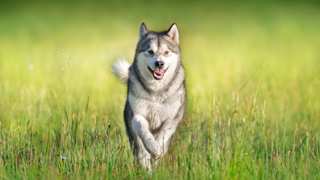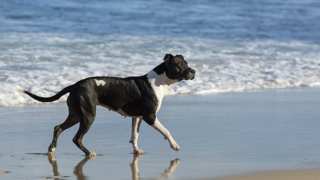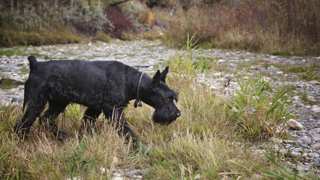Northern Inuit Dogs are athletic and well-built, so they'll need a diet that corresponds to their active lifestyles. Like all breeds, NI Dog food will need to contain plenty of animal proteins and carbohydrates for energy, vitamins and minerals for digestive and immune health, and omega fatty acids for coat and skin wellness. This means the best choice of food for NI Dogs is the premium dry kind, particularly brands formulated for active breeds (or, if your NI Dog is 90 pounds or more, a large-breed formula is good). This high-quality kibble, while more expensive and difficult to obtain, contains balanced portions of the above-listed ingredients--all of which your NI Dog needs to maintain its health in the long term. Cheap, generic food is not recommended for this crossbreed, because it contains mostly empty "filler" ingredients that are unhealthy, are harder for the dog to digest, and can even shorten its lifespan if consumed on a regular basis.
Blue Buffalo, Royal Canin, and Taste of the Wild are three recommended brands that carry excellent lines of premium dry food.
In regards to portions: meal sizes will vary depending on your NI Dog's weight, which can range from 55 to 110 pounds. On average, though, a healthy adult NI Dog weighing 80 pounds will need about three cups of premium dry food per day, divided into two meals. NI Dog puppies, depending on age, will need a bit less: about 2¼ cups per day, divided into three meals (not two) until six months old.
For further details on feeding a Northern Inuit Dog from puppyhood through maturity, see the following chart:
Northern Inuit Dog Feeding ChartDog AgeDog WeightFood TypeAmountFrequency2 Months10 lbsDry (Puppy formula)0.3 cups3x/day3 Months20 lbsDry0.5 cups3x/day6 Months45 lbsDry0.75 cups3x/day9 Months65 lbsDry* (Puppy/Adult)1.25 cups2x/day12 Months+80 lbsDry (Adult formula)1.5 cups2x/day*--Around this time, transition to adult food by first mixing in a bit of adult formula with the puppy formula. Over the course of a week, with each meal add a bit more adult food to the mixture, until the dog is eating it entirely.
If possible, try and stick to the above-listed portions (which will be modified, of course, depending on your NI Dog's size). While this crossbreed isn't especially prone to obesity, it can certainly become overweight if constantly overfed (and under-exercised)--and a fat Northern Inuit Dog will have joint, breathing, and digestive issues, not to mention a potentially shortened lifespan. You can help control your NI Dog's weight by establishing consistent feeding and exercise schedules, by not feeding the dog table scraps, and by not leaving food in the dog's bowl all the time, thereby allowing it to eat anytime it wants. It's better to put your NI Dog's bowl down only at mealtimes--then pick it up a few minutes after the dog begins eating.
If you're worried your NI Dog is overweight, give the dog this simple test: run a hand along its side, and if you can't feel any ribs, it's diet time. Reduce the dog's daily food consumption by one-fourth, and add an extra walk, jog, bike ride, or play period to its daily exercise schedule.



